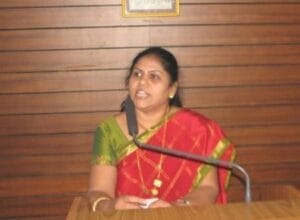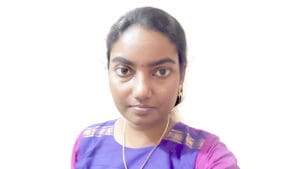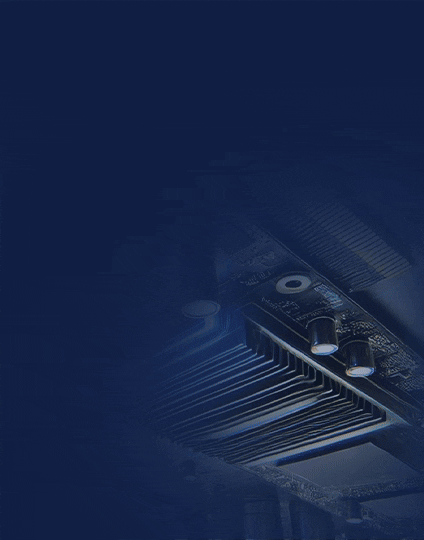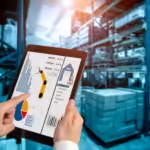Explore Sabhya’s journey as a female Senior Software Engineer. Uncover challenges, advice for women in engineering, and insights on her evolving career in this dynamic field.

What’s your Name, job title & area of research/work?
My name is Sabhya Gupta, I’m working as a Senior Software Engineer at HCL Technologies, and my primary area of work is embedded software development & verification.
What sparked your interest in engineering? Can you describe the moment you realized this was a field you’d like to pursue?
Honestly, it started quite early for me. I’ve always been fascinated by how things work even as a kid I loved dismantling electronic toys just to see what’s inside and then trying (sometimes unsuccessfully) to put them back together.
But the real moment came in class 11 when I had my first proper exposure to Physics and Computer Science.
I remember writing a small C program and watching it actually run it felt magical. That “I typed this, and now this machine is doing something because of me” moment was extremely empowering.
What are your experiences of being a female engineer?
Being a female engineer has been a mix of pride and occasional challenges. Most of my colleagues are supportive and treat me equally, but in the beginning, I did face a few assumptions like “you must be from QA or documentation.”
Sometimes I had to be a bit more assertive to be heard, but once people saw the quality of my work, the bias naturally faded. Overall, it feels rewarding to break stereotypes and represent women in core tech roles.
Can you tell me more about your career path so far?
I started as a Graduate Engineer Trainee at HCL after my B.Tech in ECE. I began with embedded firmware projects, then moved into FPGA and protocol verification.
With experience and client exposure, I got promoted to Senior Software Engineer, where I now lead a small team and handle core embedded/FPGA projects.
What has been your most challenging experience as an engineer?
One of my most challenging experiences was leading a time-critical FPGA verification project for a major client.
The specs kept changing, and we were short on resources. I had to quickly adapt, learn new tools on the go, and coordinate across teams all while ensuring zero compromise on quality.
It pushed me out of my comfort zone, but it also made me more confident as an engineer and a leader.
What is the most exciting thing about your job?
The most exciting part is seeing your work come to life in real products.
Knowing that the code or logic you wrote is actually running inside a device used by hundreds or thousands of people that feeling is unbeatable.
Every new project feels like a fresh puzzle to solve, and that constant learning keeps the job interesting.
What kind of impact would bring you great satisfaction in your work?
Seeing my work make a real difference whether it improves a product’s performance, simplifies a process, or helps a client solve a critical problem gives me the most satisfaction.
Knowing that my contribution actually added value and made things better is what motivates me the most.
What do you think needs to be done to improve the statistics in terms of women’s participation in engineering?
First, we need to start early more awareness and encouragement for girls in school to explore STEM subjects confidently.
Second, visible role models and mentorship really matter. When young women see other women succeeding in core tech roles, it feels achievable.
Lastly, workplaces need to continue creating supportive and inclusive environments fair opportunities, flexible policies, and zero-tolerance for bias can go a long way in retaining more women in engineering.
What do you enjoy most and least about engineering?
What I enjoy most:
The problem solving! Every project feels like a new challenge and it’s very satisfying when you finally crack a complex issue.
What I enjoy least:
Occasional long debugging sessions or last-minute requirement changes they can get mentally exhausting at times.
Who has been your greatest support, coach, and mentor across [Industry], and why?
My biggest support has been my father, who always believed in my abilities and encouraged me to enter core engineering.
In the industry, one of my senior leads at HCL acted as a great mentor he pushed me to take up challenging tasks and helped me build confidence in my technical skills.
What is it like to be a woman in engineering? Do you feel that your gender gives you a different perspective and experience from your male counterparts? Any advantages?
Being a woman in engineering definitely gives a slightly different perspective not because the technical work changes, but because you often become more mindful of representation and inclusivity.
There are times when you feel like you need to prove yourself a little more, but it also becomes a strength you tend to be more detail-oriented, empathetic in team settings, and focused on creating solutions that truly work for everyone.
So yes, the experience is different and honestly, it comes with its own advantages, like bringing a more balanced and people-aware approach to technical problem-solving.
What advice do you have for women interested in engineering? What kinds of practical experience should they have? What technical skills should they pick up?
Don’t overthink it if you enjoy building/solving things, just take the leap.
Start with simple hands-on projects and internships so you get real exposure instead of just theory. It really helps build confidence.
And most importantly trust that you belong here.











